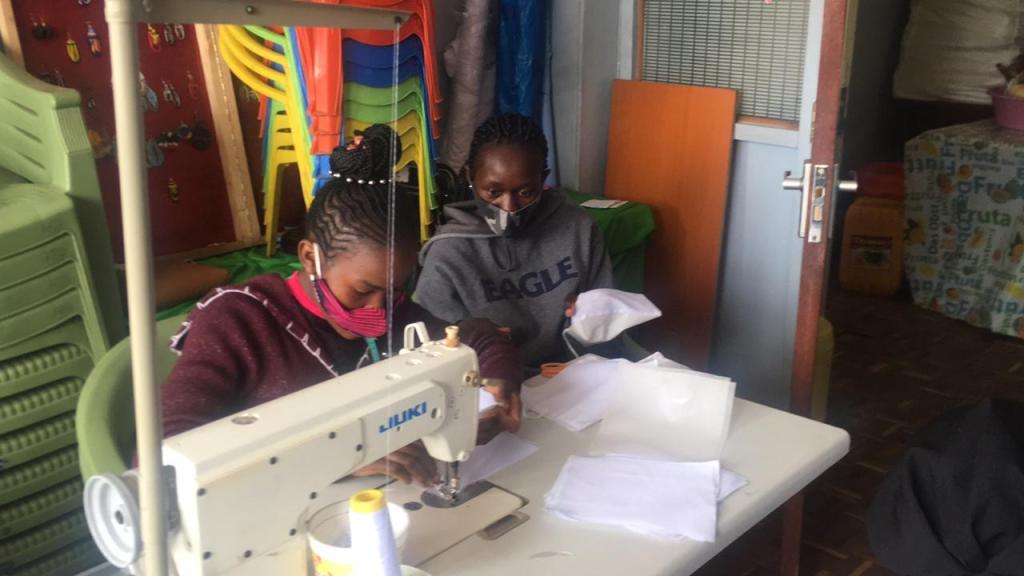In past periods of famine in Africa, relief organizations often flew in food staples from America and Europe at enormous cost. Regional suppliers seldom were tapped, depressing prices, consigning African agriculture to low output. Rather than build the economy of the nation in distress, helpers tended to co-opt their means of recovery.
The same appears to be happening with PPE (Personal Protective Equipment) in Africa. My particular interest is Kenya where, through Baraka Women’s Center, I know some back stories of Kenya’s COVID response.
The Plan
In April 2019, the Kenya National Chamber of Commerce and Industry (KNCCI), the Kenya National Federation of Jua Kali Associations (KNFJKA), and The Micro and Small Enterprise Authority (MSEA) formed a coalition to promote small business in the so-called ‘informal sector.’ For COVID response, MSEA was tasked with forwarding the Ministry of Health’s orders to vetted small businesses, and paying invoices when the masks were delivered.
In an April 24th speech (at approx. 8 minutes in) Kenya President Uhuru Kenyatta promised KES 1.5 billion (about $17.5 million) to enable the Jua Kali sector to take ‘center stage’ in the production of face masks for domestic and export markets.
Informal sector businesses contribute about 83% of economic activity in Kenya. Anything that supports growth in this sector will have a huge positive impact on the country’s recovery.
Money Arrives!
Since March 2020, money has been pouring into Kenya for COVID response:
$724 million from the International Monetary Fund
$208 million from The African Development Bank
$69 million from the European Union
Total: about $2.1 billion. This does not include smaller pledges and donated goods. Most of these funds are directed through the Ministry of Health.
The Train Wreck
Now we come to the Kenyan tradition of corruption, though profiteering has been a worldwide phenomenon during this pandemic.
Speaking on Monday, Aug 10, Health Minister Mutahi Kagwe said he and President Uhuru Kenyatta are determined to eliminate cartels in the Procurement Department inside the Ministry of Health.
Meanwhile, 42 small manufacturers throughout Kenya have, or can acquire, the capacity to meet the government goal of getting 24 million face masks to Kenyans. Thirty- four of the organizations (80%) are managed by women.
Orders came to some like Baraka Women’s Center in May. As of Aug 10, they still have not gotten requests for delivery nor received payment for finished masks.
For them, finished inventory is taking up too much space. Cash flow has fallen to a trickle. The women who sew cannot be paid. Families go hungry and feel more panicked about it.
Enter COVID-19 Action Fund for Africa (CAFA), a PPE initiative of over 30 organizations “dedicated to protecting Community Health Workers on the frontlines of Africa’s COVID-19 response” in 24 African countries (including Kenya). Key objectives: Find an urgent unmet need and protect community health services delivery.
The only reason there could be unmet needs for face masks in Kenyan is that MSEs / Jua Kali have been sidelined. CAFA’s incoming Western- or Chinese-made masks could depress prices in Kenya where, with sufficient capital, small women-lead businesses could deliver a wider and more durable country-based response.
The next two months offer an “opportunity window” to grow Kenya’s PPE manufacturing capacity.
It’s hard to predict when the train wreck debris will be sorted. The livelihoods of thousands of women now depend on a probe of government corruption, the actions of illegal cartels, and the reach of “well-wishers.” But the virus and hunger pause for no one.
Thanks to Dannika Andersen for fact-checking.

